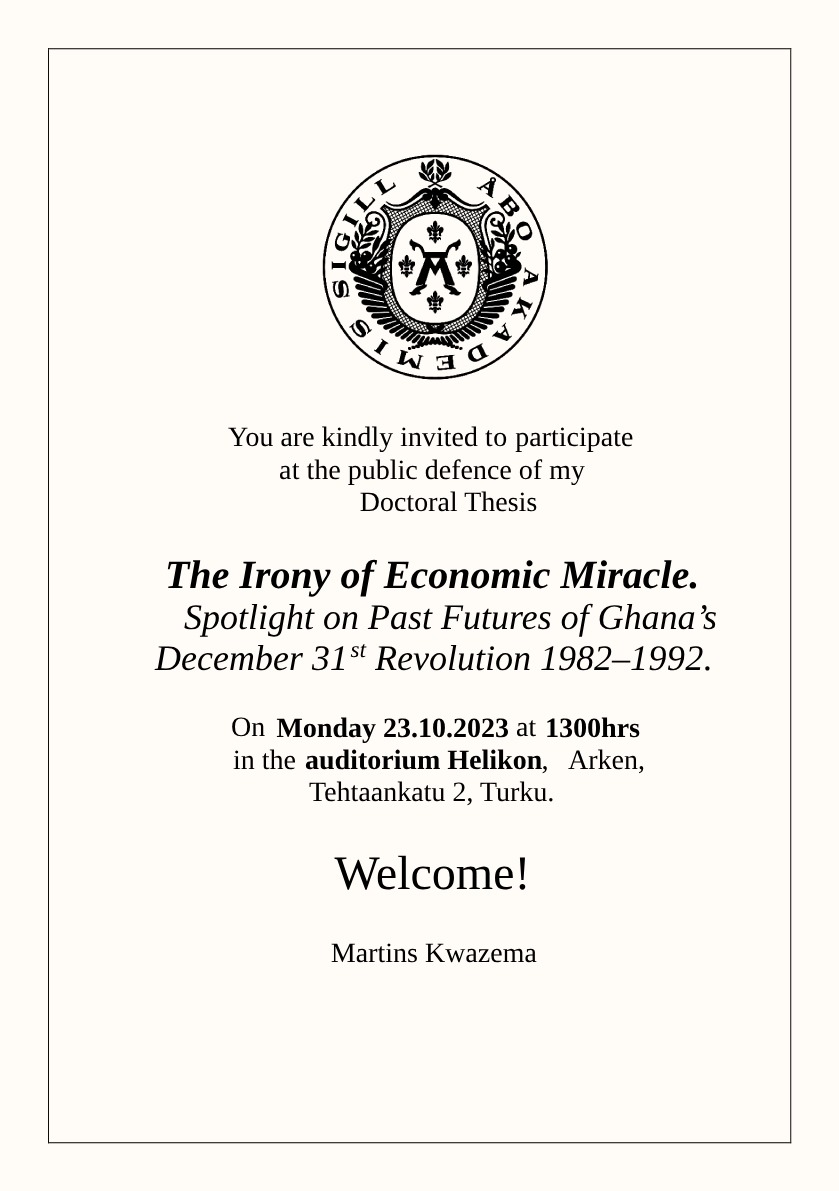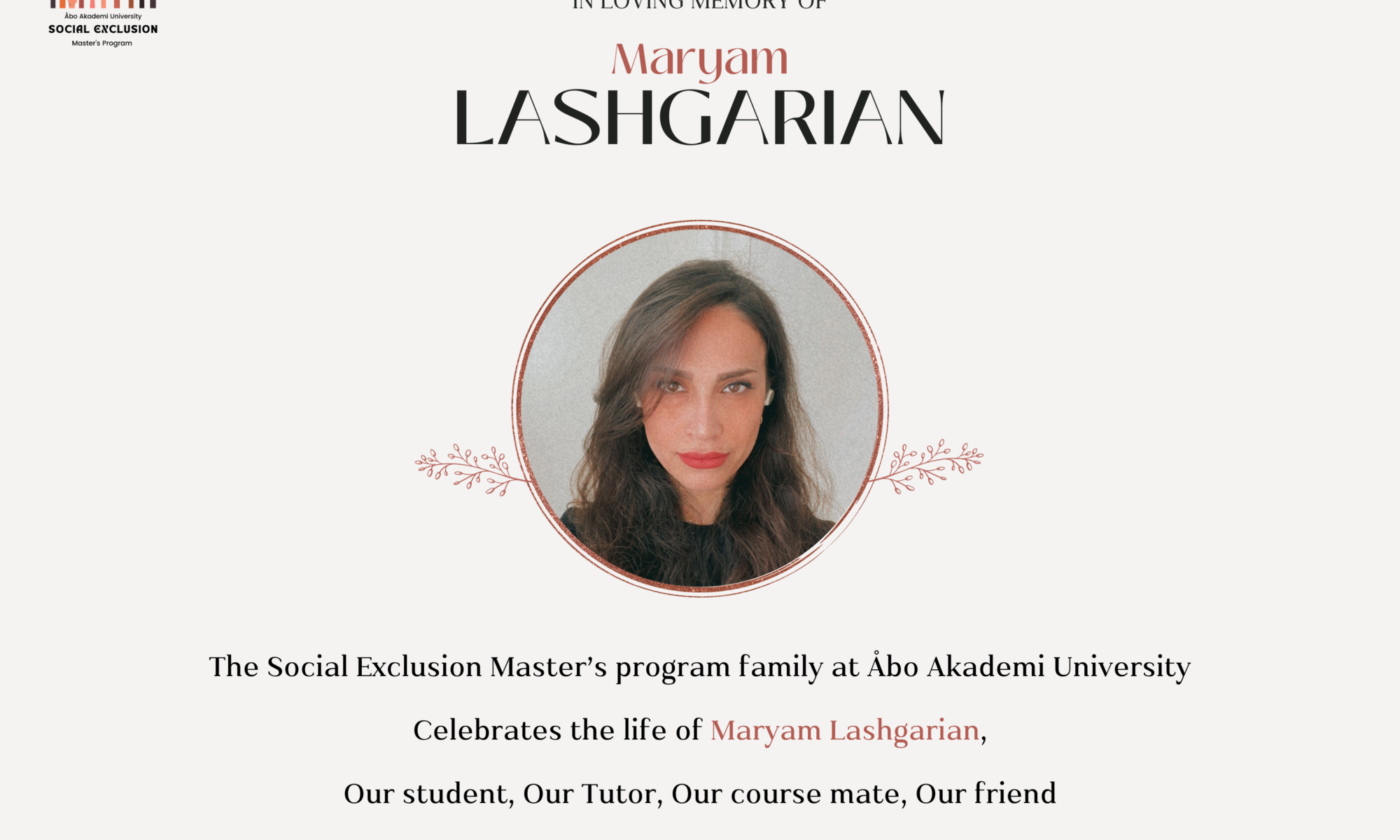Student Blog By: Akinyemi Ismaila Tunde
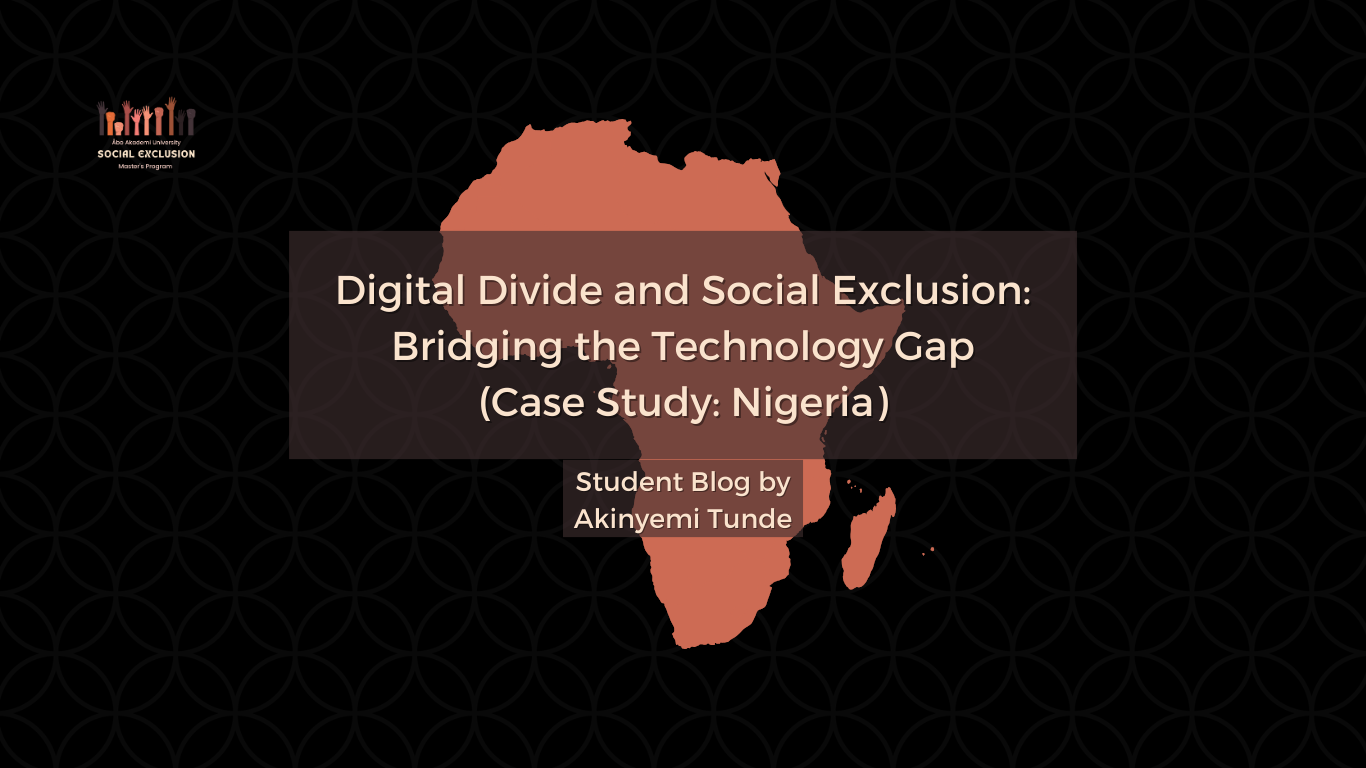
It is important to acknowledge that the advent of disruptive technologies has changed every aspect of our lives in ways we never previously imagined. According to Business Insider, around August 2022, a Polish giant drinks maker, Dictador noted that it is poised to be the first company in the world to appoint an AI (Artificial Intelligence) robot as its ‘experimental’ Chief Executive Officer (CEO) (Mann, 2023). This giant step shows that the world is in the middle of the 4th industrial revolution and the only way forward for everyone to prepare for this radical change.
However, it is not all good news because there are some disadvantages of this innovation especially in the fact that it can foster a digital divide and challenge social inclusions. Like every other social and economic disparity, the International Finance Corporation (2023), predicts that the digital divide and social exclusion can further increase poverty levels and social inequalities in various areas of the world because access to information increases access to financial success (IFC, 2023)
As noted by Seeletsco and Kaplan (2022), even while digitalization is a worthy endeavour, it has had detrimental effects in several emerging nations, particularly in sub-Saharan Africa. The negative effects of technology adoption, such as social isolation and the digital divide, have impacted many people in developing nations.
What is the Digital Divide?
Digital disparities across people, families, enterprises, and geographic areas are together referred to as the “digital divide” (Pick and Sarkar, 2016; OECD, 2001). As established by Taylor and Rasure (2023), the digital divide is a term used to explain the lack of access to digital technologies caused by either a lack of finance, or geographical, demographical, or technical limitations.
The term was popularized in the late 20th century to refer to the limited access to phones and other digital gadgets in various parts of the world. More recently, it is used to examine the lack of internet access and connectivity between males and females, developed or developing countries, urban and rural areas, and oceanic and landlocked areas in different locations of the world.
In 2022, 80% of Europeans and just 22% of Africans had access to an internet connection, indicating the continued disparity in internet penetration rates between continents (IFC, 2023). According to Deloitte (2021), the United States would have added 875,000 new jobs and over $186 billion in economic activity if there had been a 10% increase in internet availability in 2014.
These figures show the rate of the digital divide across continents and how it can contribute to the economic development of countries when it is given the utmost attention its solely deserves. Regrettably, social exclusion also has the same effect across continents.
What is Social Exclusion?
As confirmed by Cuesta, López-Nova, and Niño-Zarazúa (2022), it is estimated that 2.33 billion to 2.43 billion individuals, or around 32% of the world’s population, are in danger of social exclusion. There are 1.3 billion of these individuals living in the South Asian, East Asian, and Pacific areas; 840 million of them reside in China and India alone. Conversely, the highest percentage of any area is seen in Sub-Saharan Africa, where 52% of the population is susceptible to being excluded.
Social Exclusion is defined by Walsh (2006) as the process of preventing someone from fully accessing rights, opportunities, and resources that are typically available to members of a different group and that are essential to social integration and the upholding of human rights within that specific group.
The Relationship between Digital Divide, Social Exclusion and Poverty
The relationship between poverty and digital exclusion is evident. According to Gunkel (2003) (and as already established above), sub-Saharan Africa, the most improvised region on the planet also has the highest rate of ‘digital divide’ and ‘social exclusion’ in the world.
Bridging the technology gap by combating the digital divide and social exclusion is directly related to bridging the poverty gap (Gunkel, 2023), and policymakers and governments across sub-Saharan Africa (most especially) and everywhere else need to understand and appreciate the importance of providing affordable digital technologies because of its power to combat crime, unemployment, poverty, insecurity, and foster economic development.
Digital Divide and Social Exclusion in Nigeria
Nigeria, with its burgeoning middle class, nascent democracy, and youthful populace, is a shining star in sub-Saharan Africa. Nonetheless, the nation continues to confront difficulties in closing the digital gap and expanding employment, educational, and global economic prospects.
In Nigeria, for instance, the National Bureau of Statistics (2023) recorded the real Gross Domestic Product (GDP) for the Information and Communications Technology (ICT) sector for the second quarter of 2023 was 19.54%. In comparison to the 18.44% registered during the same time previous year, this indicates a rise in contribution year on year (YOY) (NBS, 2023).
Why is it important to close the Digital Divide in Nigeria?
The figures from the NBS above show the importance of technology and why there is a need for governments and policymakers to leverage digital innovations to deliver nation-building plans and national economic development projections. According to the IMF (2023), Nigeria is the largest economy in Africa and its most populous nation. So, if 20% of the Nigerian economy is contributed by digital technology with little or no governmental help. It is interesting to imagine the unlimited opportunities available in the ICT space when the government begins to seriously tackle the digital divide and social exclusion that is pervasive in Nigeria.
Edafewotu and Okocha (2022) believe that the challenges presented by the digital divide in Nigeria necessitate a comprehensive strategy that ought to enhance economic growth. It is advised that bridging the country’s digital gap is essential to achieving socio-economic progress in the country. Nigeria must close the growing digital divide that exists inside and between sub-Saharan African states, communities, and people.
How to close the Digital Divide in Nigeria?
To achieve this, the United Nations is actively helping countries with the provision of internet access and penetration through the Alliance for Affordable Internet (A4AI) which seeks to lower broadband internet costs in particular global regions, and Starlink which has sent satellites into orbit to deliver high-speed internet at cheap worldwide coverage.
Also, the Nigerian government has been collaborating with the Intel World Ahead Programme to increase possibilities of available when the poor have access to digital technologies. Tens of thousands of Nigerians are getting their first PC thanks to the Computers for All Nigerians Initiative (CANi), and schoolchildren in Nigeria are using computers for the first time. Additionally, instructors are becoming more adept at using technology to enhance teaching and learning (Intel Nigeria, 2023).
Another way to close the digital divide is by establishing internet centers that serve all local governments, implementing hands-on information and communications technology (ICT) courses in schools, and providing tax breaks to private businesses to incentivize them to invest in digital infrastructure (Olajide, 2023).
However, the Nigerian government can also learn from the government of the United States’ response to the digital divide and social exclusion roadmaps by providing laws and legislation like the Infrastructure and Jobs Acts (2021). The comprehensive package was signed into law by President Joe Biden on November 15, 2021, which aims to close the digital divide by investing $65 billion to provide rural America with high-speed internet.
Conclusively, it is crucial to remember that closing the digital gap is a complicated problem that calls for a multifaceted strategy. The leaders of Nigeria need to be more proactive in using information and communications technology (ICT) to increase opportunities and allow Nigeria to take center stage in international affairs.
the Nigerian government and other countries need to understand that bridging the technology gap is paramount to preparing the country’s young and vibrant population for the future as the world continues to turn to digital technologies in the global emerging business frontier occasioned by disruptive technologies and innovation.
—
References
Cuesta, J.; López-Nova, B.; Niño-Zarazúa, M., (2022). Social Exclusion: Concepts, Measurement, and a Global Estimate. Policy Research Working Papers;10097. © World Bank, Washington, DC. http://hdl.handle.net/10986/37594
Deloitte (2021), Quantifying the Economic Impact of Closing the Digital Divide. Deloittle. Available at: Deloitte: Quantifying the Economic Impact of Closing the Digital Divide – Press release | Deloitte US (Accessed 8 Nov 2023)
Edafewotu, E.; Okocha, D.; (2022). Bridging the Digital Divide in Nigeria. 33., The Journal of development communication.
Gunkel, D. J. (2003). Second thoughts: toward a critique of the digital divide. New Media & Society, 5(4), 499–522.
International Finance Corporation (2023), Creating Markets, Creating Opportunities. Available at: International Finance Corporation (IFC) (Accessed 8 Nov. 2023)
International Monetary Fund (2023), Regional Economic Outlook Report: Light on the Horizon? Available at: https://www.imf.org/en/Publications/REO/SSA/Issues/2023/10/16/regional-economic-outlook-for-sub-saharan-africa-october-2023 (Accessed 8 Nov. 2023)
Intel Nigeria (2023), White Paper: Bridging the Digital Divide in Nigeria. Available at: https://www.intel.com/content/dam/doc/white-paper/learning-series-bridging-digital-divide-nigeria-paper.pdf (Accessed on: 13th Nov. 2023)
Mann, J., (2023), The humanoid robot CEO of a drinks company says she doesn’t have weekends and is ‘always on 24/7’ Business Insider. Available at: https://africa.businessinsider.com/news/the-humanoid-robot-ceo-of-a-drinks-company-says-she-doesnt-have-weekends-and-is/41jq5dy (Accessed 8 Nov. 2023)
National Bureau of Statistics (2023), GDP Growth (Y-O-Y) Second Quarter. Available at: https://nigerianstat.gov.ng/ (Accessed 8 Nov. 2023)
OECD. (2001). Understanding the digital divide. OECD Digital Economy Papers, 49, OECD Publishing, Paris, France. https://doi.org/10.1787/236405667766.
Olajide, L., (2023), CLOSING THE DIGITAL GENDER GAP IN NIGERIA: WHAT MUST BE DONE. Aspilos Foundation. Available at: https://aspilosfoundation.org.ng/2021/02/01/closing-the-digital-gender-gap-in-nigeria-what-must-be-done/ (Accessed on: 13 Nov 2023)
Pick, J., & Sarkar, A. (2016). Theories of the digital divide: Critical comparison. In 49th Hawaii International Conference on System Sciences (HICSS 2016) Proceedings, IEEE, 3888–3897.
Seeletso, K.M., & Kaplan, A., (2022), Digital Transformation and Disruption of Higher Education , pp. 34 – 44, Cambridge University Press. DOI: https://doi.org/10.1017/9781108979146.006
Taylor K., and Rasure, K., (2023), The Digital Divide: What It Is, and What’s Being Done to Close It. Investopedia. Available at:https://www.investopedia.com/the-digital-divide-5116352#What%20Is%20The%20Digital%20Divide? (Accessed 8 Nov 2023)
Walsh, T (2006). “A right to inclusion? Homelessness, human rights, and social exclusion”. Australian Journal of Human Rights. 12 (1): 185–204. doi:10.1080/1323238x.2006.11910818. S2CID 150777458.
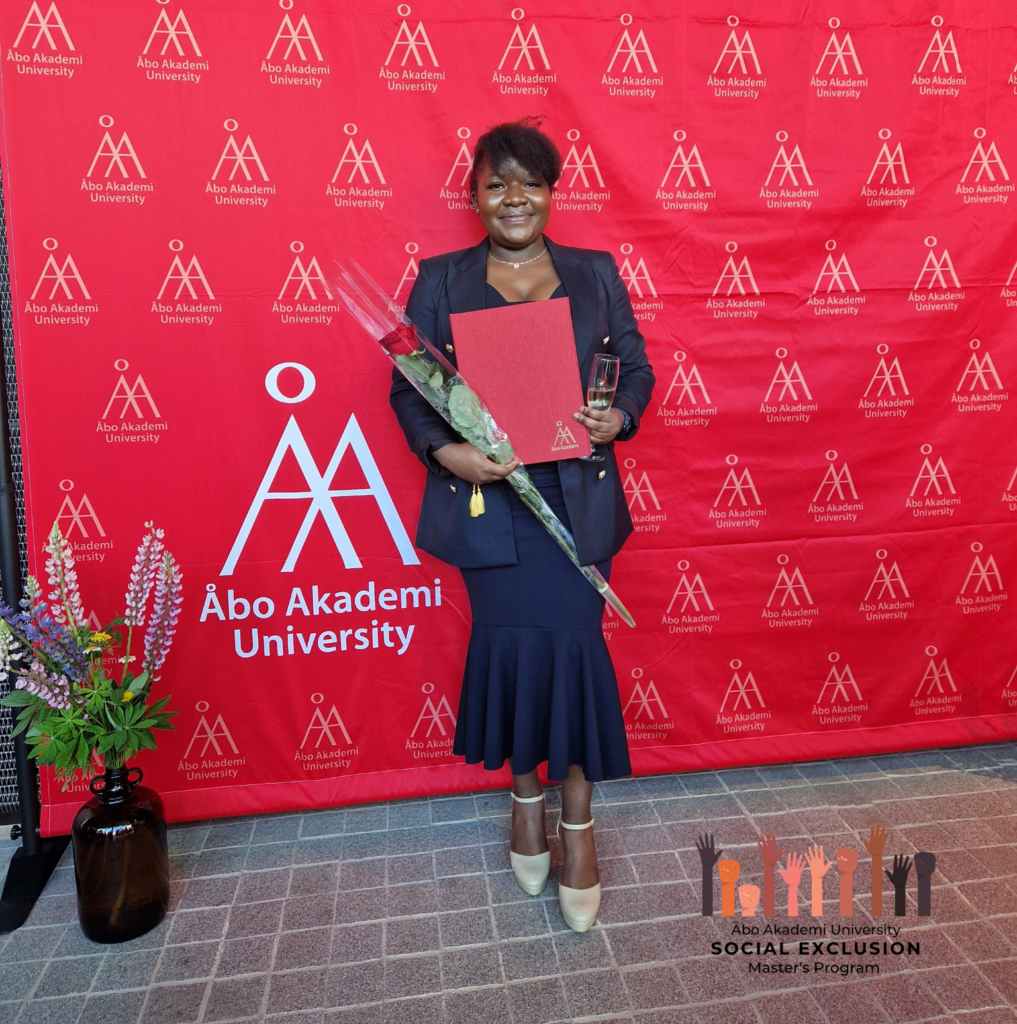
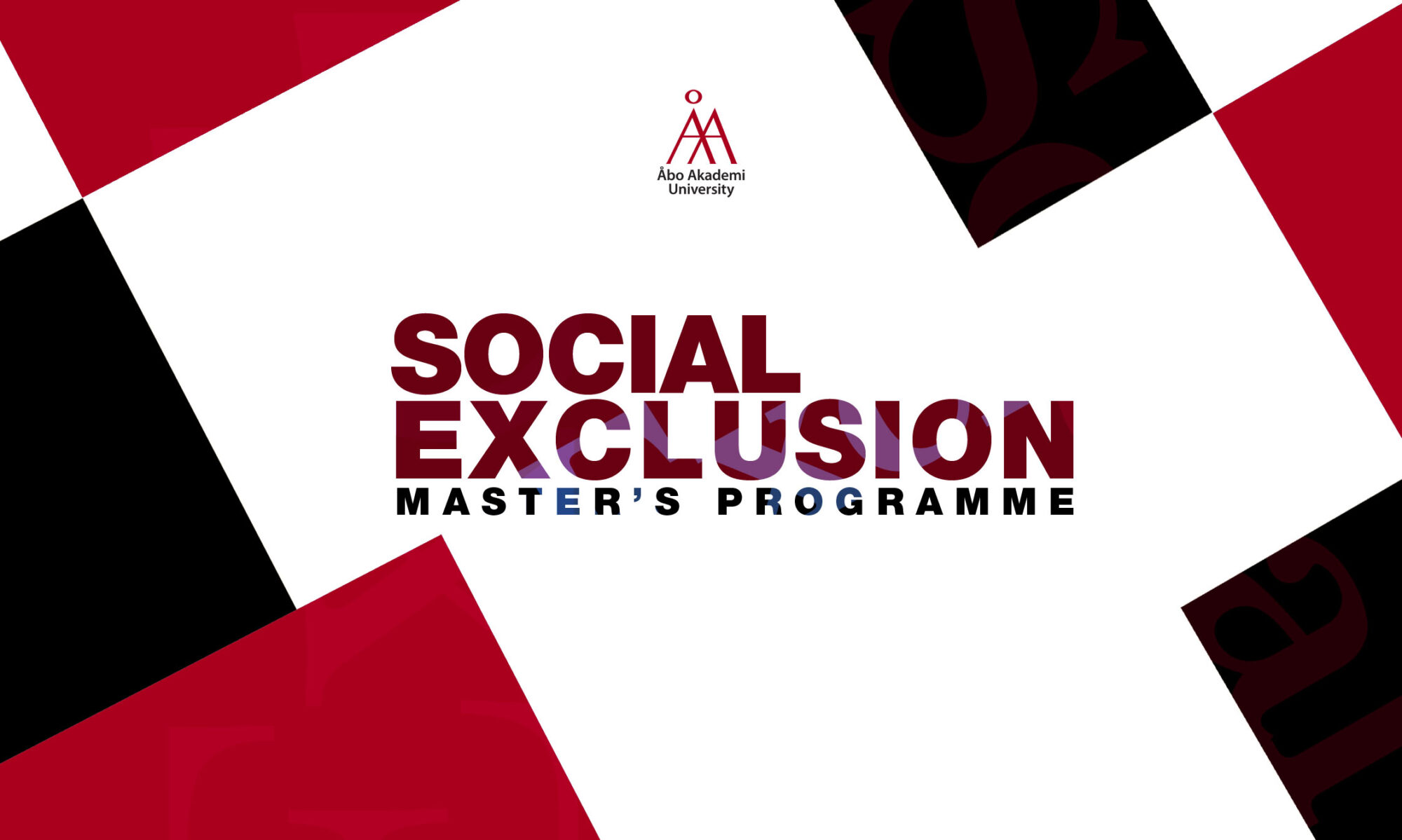
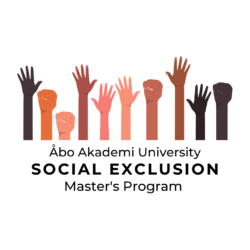
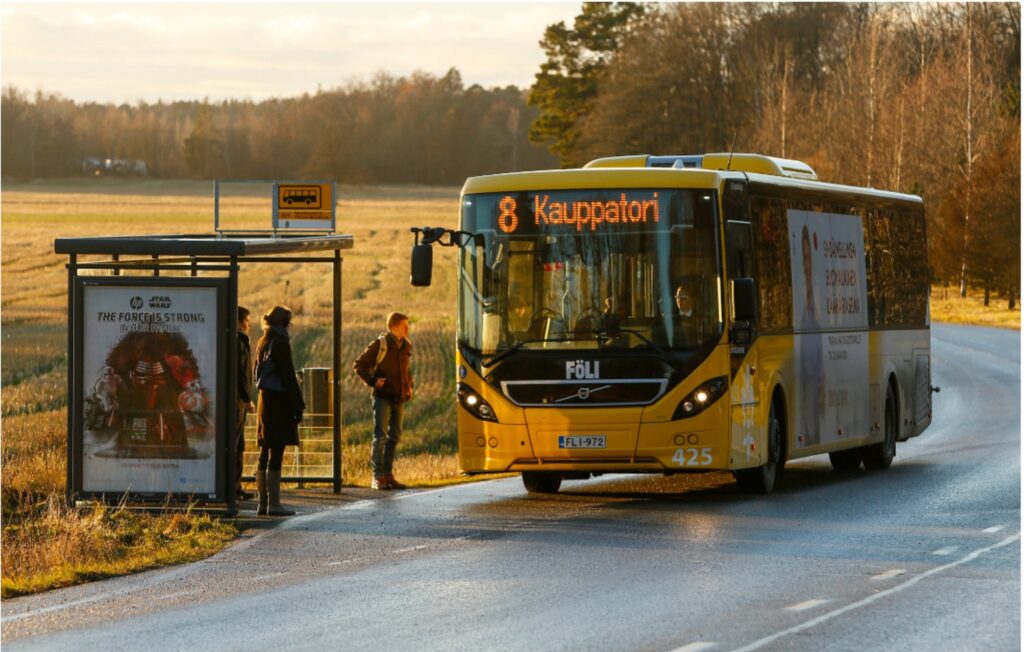
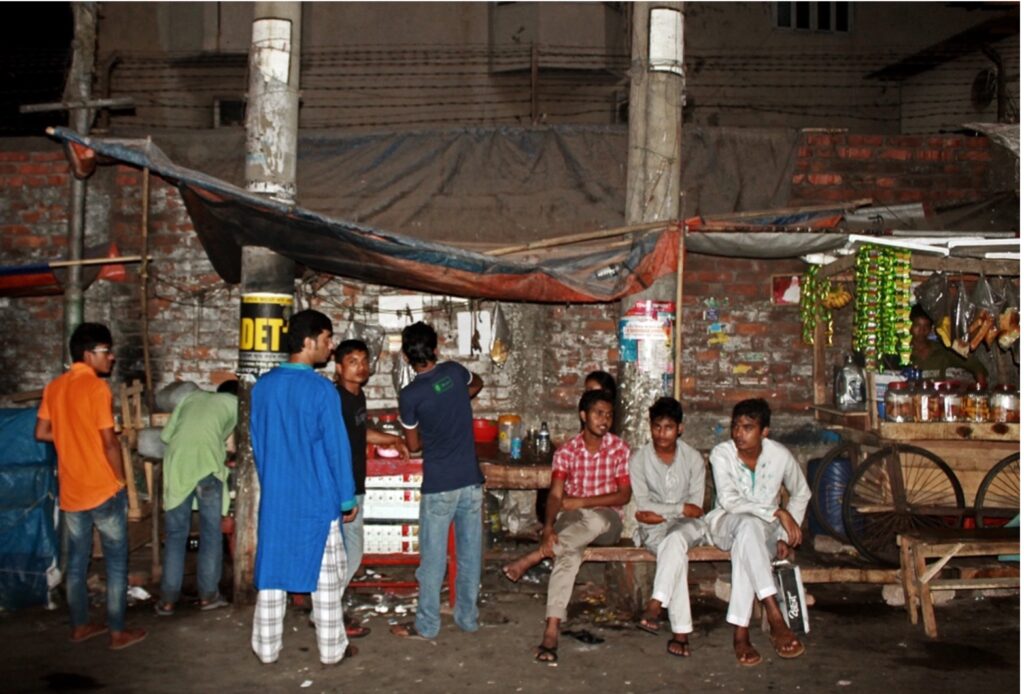


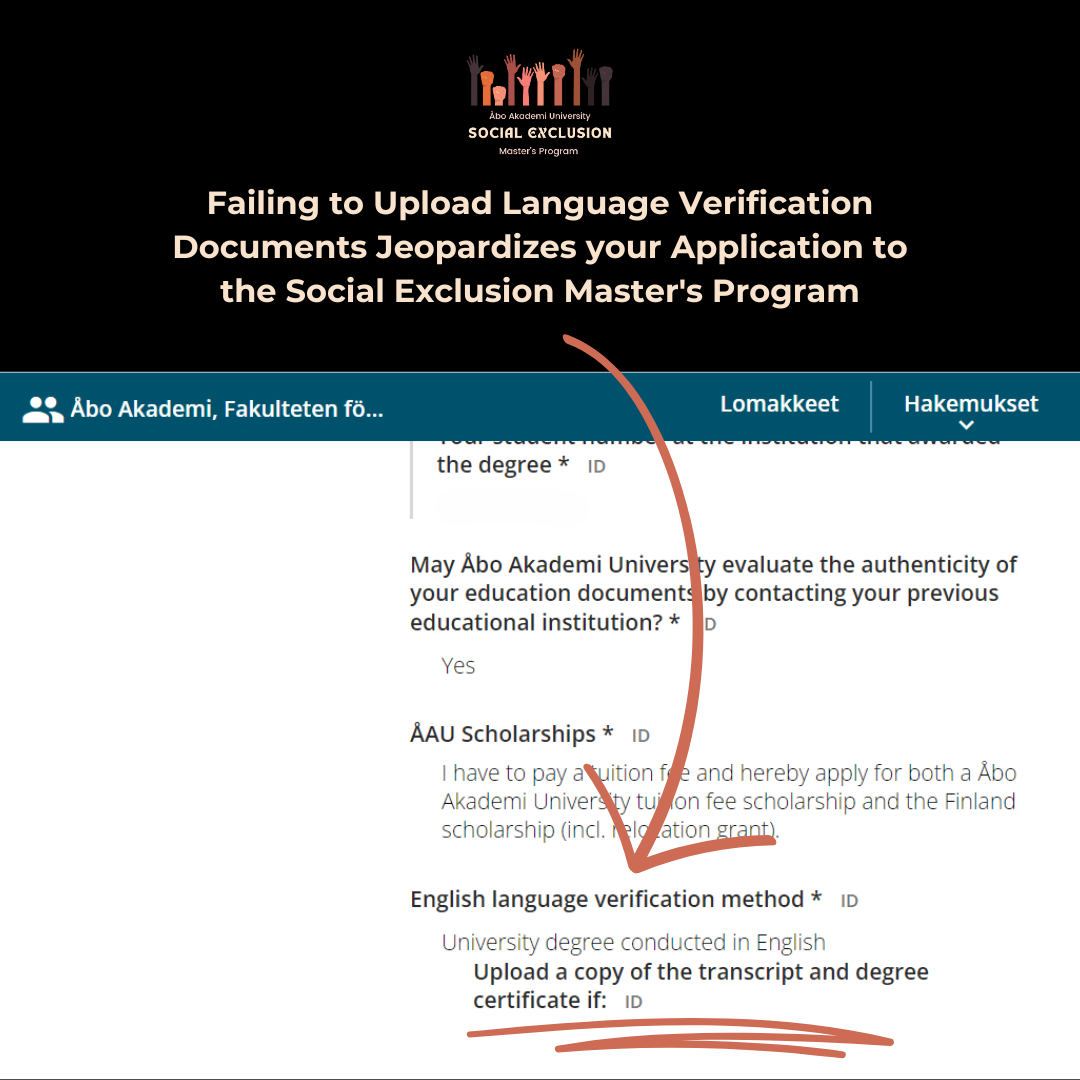


 In our correspondence with Peter Nynäs, the first head of the program, we delved into the early days when the idea of the Master’s Degree Programme in Social Exclusion was taking shape. The decision to start the program was initiated by the Åbo Akademi University board in August 2017, marking a significant milestone as the first international program in the Faculty of Arts, Psychology, and Theology.
In our correspondence with Peter Nynäs, the first head of the program, we delved into the early days when the idea of the Master’s Degree Programme in Social Exclusion was taking shape. The decision to start the program was initiated by the Åbo Akademi University board in August 2017, marking a significant milestone as the first international program in the Faculty of Arts, Psychology, and Theology. In our correspondence with Aminkeng Alemanji, the current head of the Social Exclusion Master’s Program, we gained insights into the major milestones and achievements of the program. He highlighted the journey from an idea conceived by Peter Nynäs to the program’s realization.
In our correspondence with Aminkeng Alemanji, the current head of the Social Exclusion Master’s Program, we gained insights into the major milestones and achievements of the program. He highlighted the journey from an idea conceived by Peter Nynäs to the program’s realization.